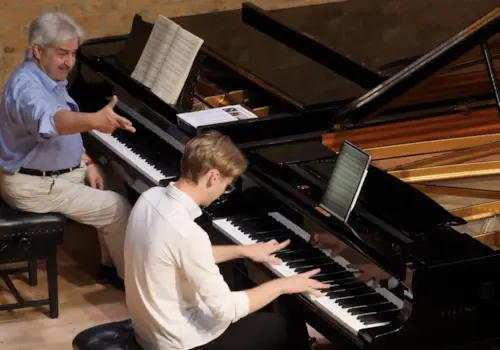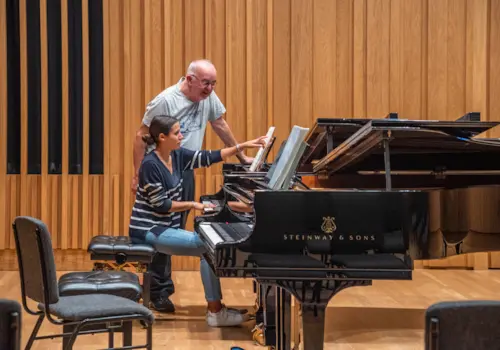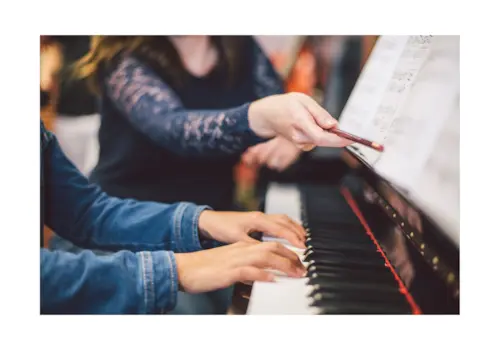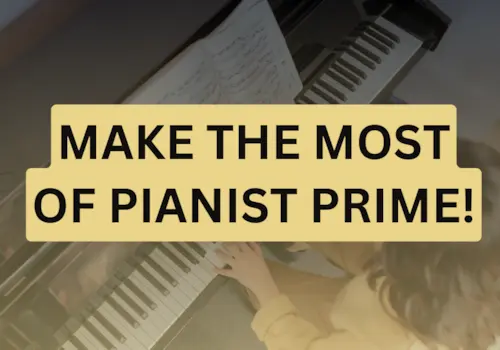Classical pianist & columnist Daniel Johnson suggests ways of learning piano later in life
Coming to the piano later in life or picking it back up after a break, there will always be a sense of what you want to achieve, and the sudden realisation that it is going to be a long journey. But, with the right experiences and lead from your teacher, you will soon find that it’s the sheer enjoyment that is the most important part of all.
When I perform on prestigious cruise lines – giving up to 6 recitals in 2 weeks – I am lucky to meet a huge variety of people from all walks of life. They all have one thing in common, and that is music, and very often piano; with tales of learning in their formative years and reviving their ambition… or expressing their regret. A moto of mine is that it is never too late to learn anything in life and with perseverance and some patience, the option to enjoy playing music is right there. I always say, whatever level you are at, the most important aspect is that you revel in the pleasure of sitting and playing the piano.
So, if you’ve come back to playing the piano, what can you do to enhance your experience? An exam, perhaps, or a performance, which many teachers subscribe to in their local practice. Something to consider is perhaps a local competitive music festival.
'A wonderful sense of achievement'
As a general overview, a competitive festival will comprise ‘classes’ of all disciplines – I remember doing one for sight reading – and all ages. You play a piece that has been selected by the festival for that particular class and you receive feedback from an adjudicator, in both written and verbal form. These festivals are always very popular in their respective local areas. My recommendation for entering is for an experience which will not only provide you with constructive feedback but also give you a chance to perform – a kind of bridge between taking an exam and playing in a concert. You may win, or you may come last in a class of 10. However, what you will have gained from playing that ‘short piece’ will be a wonderful sense of achievement. Therefore, everyone is a winner at this level of competition – and indeed at any competition. The first prize is the aim, but it doesn’t have to be your goal.
Piano Meet Up
If there isn’t a festival in your area, try the Piano Meet Up – sometimes known as a Piano Circle – where you can meet like-minded individuals and share your experience. You’ll be able to play and listen to others, much like a competition but perhaps in a more relaxed atmosphere. You’ll discover all kinds of new music; there may even be evenings which focus on particular composers or styles.
You can find all the information on searching for a local competitive festival near you by clicking here.
Holiday music courses
For those who may like to combine music with a holiday, there is an abundance of holiday music courses – mostly over the summer months – where you can enjoy a break as well as make music and enjoy the company of your fellow course members. I once performed a concert where the participants on the local summer music course attended, so you may even find yourself on an outing to professional concerts with your new-found friends. These courses often include accommodation and half board, signifying an intensive week of focused study which, if you’re returning to the piano, may be the precise lift and support you need.
As adults there is always an inhibition when learning something new, but with a bit of practice and various encouraging experiences in your learning, you’ll achieve what you intend. So, if you’ve come back to the piano or have decided to finally take your love for music further, take a leap and discover your musical journey.
By Daniel Johnson
British classical pianist and columnist
Follow him on Twitter: @pianistuk







